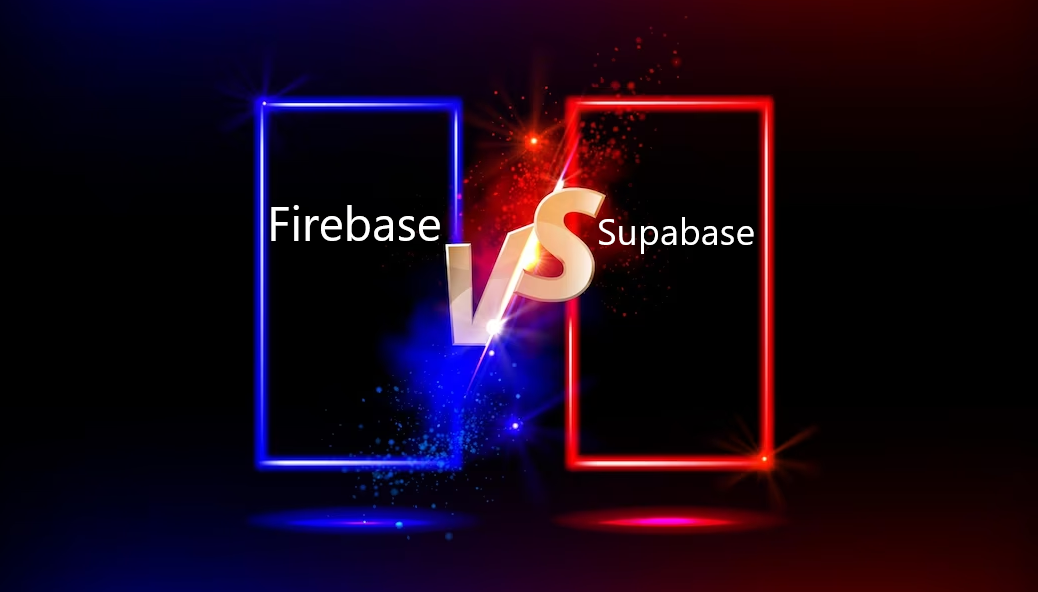
When it comes to selecting a backend for your application, Firebase and Supabase are two popular choices that offer powerful features and functionalities. Both platforms provide developers with a comprehensive set of tools to build and scale their applications. In this blog post, we will compare Firebase Vs Supabase, exploring their key features, strengths, and considerations to help you make an informed decision.
Overview of Firebase
Firebase, owned by Google, is a widely adopted backend platform that offers a range of services for building web and mobile applications. It provides a complete suite of tools including real-time database, authentication, cloud functions, storage, hosting, and more. Firebase’s key features include:
- Real-time Database: Firebase’s Real-time Database enables real-time synchronization of data across clients and devices. It is a NoSQL database that uses a JSON-based data model, making it easy to store and sync structured data in real time.
- Authentication: Firebase Authentication provides a secure and easy-to-implement authentication system. It supports various authentication methods, including email/password, social login, and phone number authentication, allowing users to sign in to your application with ease.
- Cloud Functions: Firebase Cloud Functions allows you to run server-side code in response to events and triggers. It provides a scalable and flexible environment for building custom server logic and integrations with other services.
- Storage and Hosting: Firebase Storage offers scalable and secure cloud storage for your application’s files, such as images, videos, and documents. Firebase Hosting provides fast and reliable static web hosting with SSL support.
- Analytics and Performance Monitoring: Firebase Analytics helps you gain insights into user behavior and app performance. It provides detailed analytics reports, user attribution tracking, and audience segmentation. Firebase Performance Monitoring allows you to measure and optimize app performance, identifying slow network requests and performance bottlenecks.
Overview of Supabase
Supabase is an open-source alternative to Firebase, offering a suite of backend services and tools to simplify application development. It is built on top of PostgreSQL, providing a powerful relational database management system. Supabase’s key features include:
- PostgreSQL Database: Supabase utilizes PostgreSQL as its database engine, providing a reliable and feature-rich data storage solution. Developers can leverage the full capabilities of PostgreSQL, including complex queries, data integrity, and ACID compliance.
- Real-time Subscriptions: Supabase leverages PostgreSQL’s NOTIFY/LISTEN feature to enable real-time data synchronization. It allows developers to build applications with live updates, collaborative features, and real-time dashboards.
- Authentication: Supabase provides an easy-to-use authentication system that supports email/password authentication, social login (OAuth), and multi-factor authentication (MFA). It enables developers to implement secure user authentication without much complexity.
- RESTful APIs: Supabase automatically generates RESTful APIs for database tables, making it easier to interact with the data in your application. These APIs provide CRUD operations for data manipulation.
- Serverless Functions: Supabase allows developers to define custom serverless functions using JavaScript or TypeScript. These functions can be triggered by database events or HTTP requests, providing flexibility and extensibility.
Firebase Vs Supabase
- Database: Firebase offers a NoSQL database, while Supabase leverages the power of PostgreSQL, a relational database. The choice between NoSQL and SQL depends on the nature of your data and the complexity of your application’s requirements.
- Real-time Capabilities: Firebase has a robust real-time synchronization feature built into its database, making it ideal for applications that require real-time updates. Supabase utilizes PostgreSQL’s real-time subscriptions, offering similar capabilities.
- Customization and Control: Supabase provides more flexibility and control over your application’s backend compared to Firebase. Since Supabase is built on PostgreSQL, developers have access to advanced SQL features, complex queries, and database-level control. This can be advantageous for applications that require extensive data modeling or complex relationships.
- Open Source: Supabase is an open-source platform, meaning the entire codebase is publicly available. This allows developers to inspect, modify, and contribute to the platform, providing transparency and community-driven development.
- Pricing: Firebase offers a generous free tier with limited usage, but costs can increase as your application scales and require additional resources. Supabase offers transparent pricing based on your database usage, allowing you to have a better understanding of your costs.
- Ecosystem and Integrations: Firebase benefits from Google’s extensive ecosystem and seamless integrations with other Google services like Google Cloud Platform, Google Analytics, and Google Ads. Supabase, being open source, offers flexibility and extensibility, allowing developers to integrate with a wider range of tools and services.
- Community and Support: Firebase has a large and active community with extensive documentation, tutorials, and support resources provided by Google. Supabase is relatively new but has a growing community of developers contributing to its ecosystem and offering support through forums and community channels.
- Scalability and Performance: Both Firebase and Supabase are designed to handle scalable applications, but Firebase has the advantage of Google’s infrastructure, which ensures high scalability and performance for global applications. Supabase’s performance largely relies on the underlying PostgreSQL database.
Conclusion
Choosing between Firebase Vs Supabase depends on your specific application requirements, development preferences, and priorities. Firebase offers a comprehensive suite of services, seamless integrations, and a mature ecosystem, making it an excellent choice for developers looking for a ready-to-use and scalable backend solution. On the other hand, Supabase provides greater customization, control, and an open-source approach, making it suitable for developers who prefer flexibility, extensibility, and leveraging the power of PostgreSQL.
Consider factors such as data structure, real-time capabilities, pricing, ecosystem, and support when making your decision. It may also be helpful to experiment with both platforms and evaluate how they align with your application’s long-term goals and scalability needs. Ultimately, both Firebase and Supabase offer powerful backend solutions that can accelerate your application development and empower you to create exceptional user experiences.













































Recent Comments